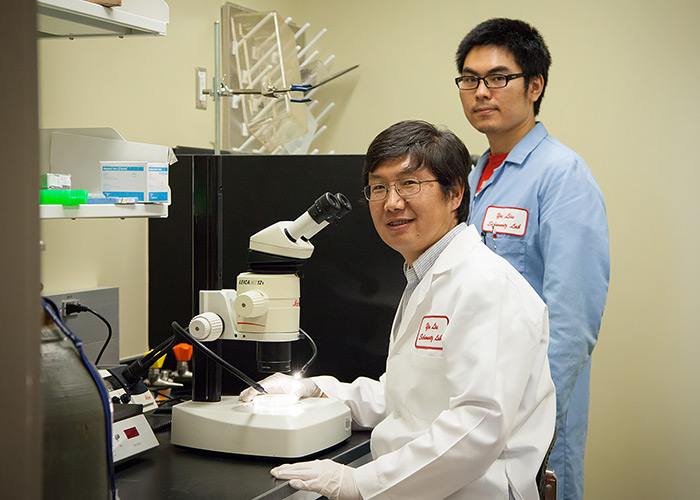By Allowing the Heart Muscle Cells to Regenerate, Liu Hopes this Research will Give Heart Attack Survivors a New Lease on Life
A groundbreaking discovery from assistant professor of biochemistry Yu Liu and his team of researchers at the University of Houston hopes to help heart muscles regenerate after a heart attack using new regulators of heart formation called MicroRNA.
 Listen to UH Moment Interview“The 5 year survival rate of the heart attack is comparable to all the cancers combined
together. It is really a terrible disease,” Liu said.
Listen to UH Moment Interview“The 5 year survival rate of the heart attack is comparable to all the cancers combined
together. It is really a terrible disease,” Liu said.
After a heart attack, lost cells are replaced by connective tissue called fibroblasts, which leads to loss of pump function.
Liu and his team studied the earliest formation of the heart and found that by placing MicroRNA’s into the fibroblasts, he can convert them to muscle cell and inject the cells back into the patient. Bob Schwartz, Cullen Distinguished Professor of biochemistry and one of the authors of the study, said this discovery could save lives.
“What we hope is that cells that we have reprogrammed can be applied to human patients that had a heart attack and reduce scar,” Schwartz said.
By allowing the heart muscle cells to regenerate, Liu hopes this research will give heart attack survivors a new lease on life.
“The survival rate is so low that any improvement will be of great help to the patients,” Liu said.
- Greg Ortiz, University Media Relations